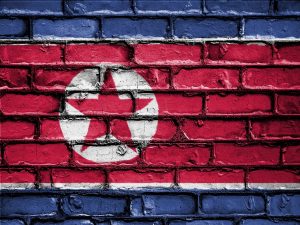Last week Senator Edward J. Markey and Representative Andy Levin, both Democrats, reintroduced a bicameral bill that would reduce roadblocks standing in the way of lifesaving aid to the North Korean people and expedite humanitarian travel permissions for groups involved in humanitarian activities. The legislation puts forward concrete solutions to mitigate the unintended consequences of a North Korea policy that is overly reliant on economic warfare. It also poses fundamental questions about whether U.S. policy toward North Korea is ethically justifiable or merits a more sensible approach.
The Markey-Levin bill presents a stark picture of North Korea that is out of sight for most Americans but visible to humanitarian organizations working with North Koreans. More than 40 percent of North Koreans are undernourished and the growth of one out of every five children under the age of 5 is stunted. One in three households lacks clean water. According to the U.N. Human Rights Council’s latest report, deaths by starvation are rising, as are the number of young and elderly North Koreans begging because their families cannot support them.
The North Korean regime deserves condemnation for these conditions, but the international community, led by the United States, also must bear some responsibility. Washington has been a champion of unilateral and multilateral sanctions against the North Korean regime in response to its nuclear weapons program and human rights violations, especially after North Korea tested its first nuclear weapons in 2006. According to the Congressional Research Service’s March 2020 report, the U.S. president holds a broad range of powers under the National Emergencies Act and the International Emergency Economic Powers Act to limit economic activities between the United States and North Korea. Between 2004 and 2019, Congress passed eight provisions into law that further prevent trade and financial transactions with North Korea. Typically a presidential waiver is included in these measures, but evoking them will have political costs. The net effect is the stigmatization of humanitarian activities inside North Korea.
Even delivery of simple water filtration systems have become subject to waivers from the United Nations. According to Daniel Jasper of American Friends Service Committee, “clean drinking water projects for people in North Korea have often been held up by U.S. unilateral sanctions because they’re considered ‘development assistance’ instead of ‘humanitarian assistance.’” Such arbitrary measures make it difficult to address human needs and for NGOs to plan ahead and operate.
Even before the COVID-19 pandemic, medical and humanitarian experts condemned the 2017 U.N. Security Council sanction on fuel imports due to the dire impact on North Korean people. In 2019, the U.N. reported that more than 10 million people faced food shortage due to a combination of environmental disasters and sanctions that curtail agricultural production.
Targeted sanctions can be a useful tool of statecraft when deployed judiciously and lifted when situations improve. But when it comes to North Korea, Congress and the executive branch have largely been on auto-pilot, piling sanctions after sanctions in response to North Korean provocations with little debate or reflection. As the Government Accountability Office’s 2019 report suggests, an interagency assessment of whether sanctions are meeting U.S. policy goals would ensure that this economic statecraft does not run counter to the United States’ desired ends.
The United States’ sanction-driven policy toward North Korea could also undermine global efforts to combat the COVID-19 pandemic. More public information about how U.S. and U.N. sanctions could impede the delivery of COVID-related aid, and potentially, the equipment to transport, store, and administer vaccines, is urgently needed. With only two U.N. officials stationed in the country, it is already difficult to grasp both the scale of the worsening humanitarian situation as a result of sanctions and the COVID pandemic that may be raging inside North Korea.
Sanctions are often evoked in the name of upholding human rights, yet they can often have devastating impact on the basic rights of people whose country is being sanctioned. Making matters worse, none of the economic sanctions against North Korea have a sunset clause, so they are difficult to amend or remove.
The Markey-Levin bill is a common sense proposal to fix a byzantine and flawed process that makes legitimate humanitarian activities in North Korea extremely difficult. But the bill also points to an uncomfortable truth: Sanctions have become a tool of a political theater more than an element of a comprehensive strategy.
A stable Korean Peninsula is in the United States’ interest. Making near-permanent a tool that imposes collective punishment erodes U.S. standing in the world and runs counter to American values. As the Biden administration conducts its North Korea policy review, it would do well to consider the proposals in the Markey-Levin bill as well as critically assess their strategic and moral value.
Jessica J. Lee is a senior research fellow on East Asia at the Quincy Institute for Responsible Statecraft and a former congressional staffer.

































